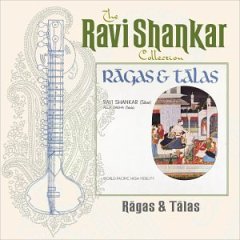This article relies largely or entirely on a single source .(May 2025) |
| Ragas & Talas | ||||
|---|---|---|---|---|
 | ||||
| Studio album by | ||||
| Released | 1959 (Vinyl) February 29, 2000 (CD) | |||
| Genre | Hindustani classical music | |||
| Label | World Pacific (vinyl) Angel Records (CD) | |||
| Ravi Shankar chronology | ||||
| ||||
| Review scores | |
|---|---|
| Source | Rating |
| Allmusic | |
Ragas & Talas is an album by Hindustani classical musician Ravi Shankar, first released in 1959 by His Master's Voice. It was later digitally remastered and released in CD format through Angel Records.